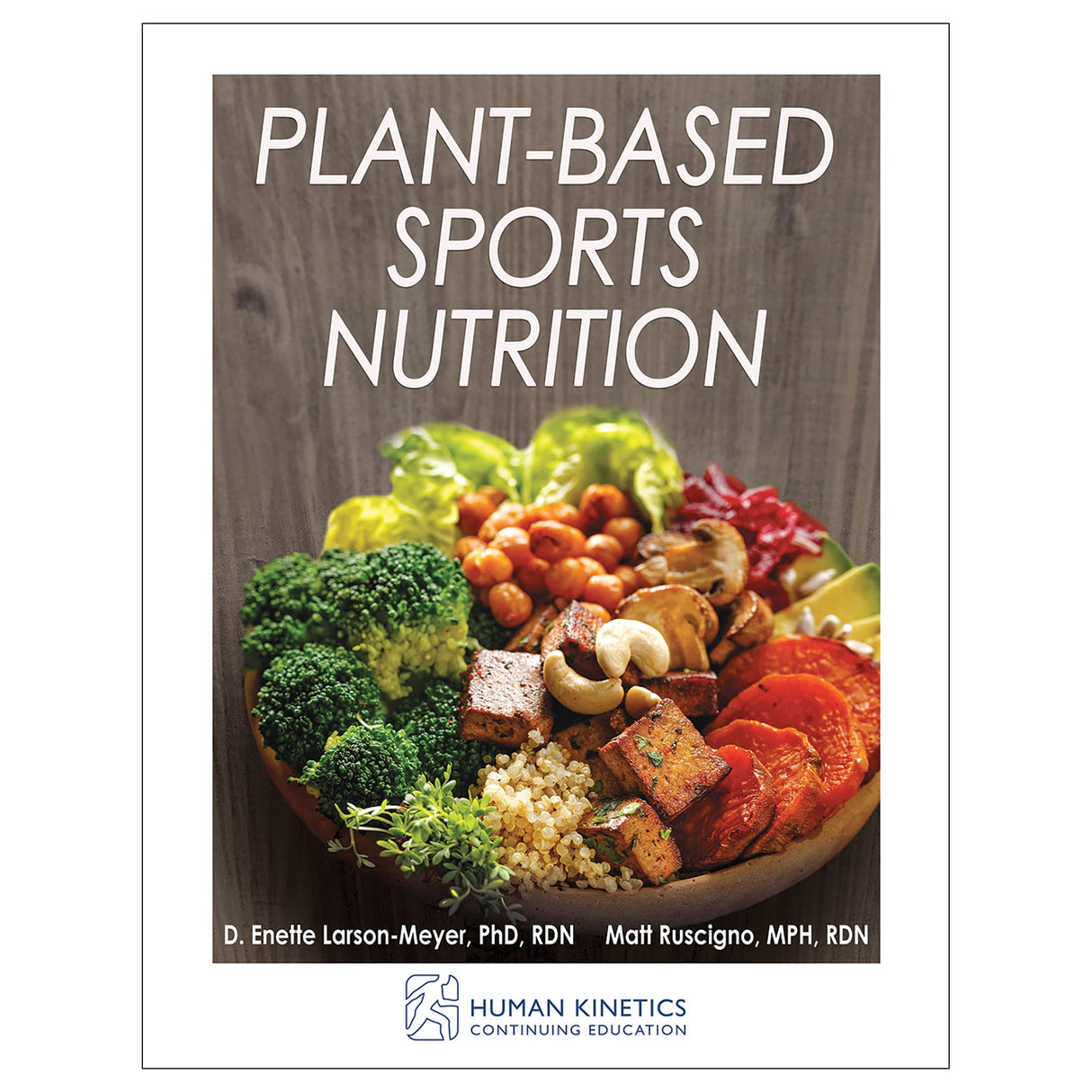Plant-Based Sports Nutrition Online CE Exam With Ebook
Author: Human Kinetics
$86.95 CAD
Human Kinetics strongly recommends that you complete your exam within the calendar year of your date of purchase to ensure approved credits do not expire for your organization.
- Plant-Based Sports Nutrition ebook
- Online continuing education exam
Learn how to ensure your athletes get proper amounts of all essential macronutrients, vitamins, and minerals, taking into account their personal caloric needs. Understand nutrient timing and relative energy deficiency syndrome (RED-S), as well as how athletes can meet protein and amino acid requirements while doing light, moderate, or intense training. Get information on keto diets, tips for optimizing bone health and iron intake, and instructions for making a fluid-replacement beverage. Draw inspiration from personal stories of athletes who share how they succeed in their sports while following a plant-based way of eating. Plus, you’ll find plenty of recipes, tailored meal plans, and training strategies to meet your athletes’ and clients’ training, event, and everyday nutrition needs and give them a plant-based competitive edge.
After reading the ebook, certified professionals can take the companion CE exam to earn continuing education credits.
Learning Objectives
- Differentiate among the types of vegetarian and plant-based diets.
- Summarize the positive health effects of plant-based eating.
- Explain why a vegetarian may experience greater endurance compared to a nonvegetarian.
- Describe how to consume adequate calories for optimal performance and weight management while following a vegetarian lifestyle.
- List the components that are used to calculate energy, carbohydrate, and protein needs of an athlete.
- Identify a plant-based menu that offers adequate calories, carbohydrate, and protein based on an athlete’s needs.
- List vegetarian foods that are rich sources of carbohydrate, protein, and unsaturated fats.
- Recognize supplements that could be helpful to an athlete living a vegetarian lifestyle.
- Describe the scope of practice for fitness professionals in discussing nutrition information with clients.
- Name vitamins and minerals that can be lacking in a vegetarian diet, and identify plant-based sources of these nutrients.
- Describe appropriate preevent and pretraining fuel and hydration based on an athlete’s weight.
- Explain the recommendations for carbohydrate and fluid intake during exercise lasting longer than 60 minutes.
Learners taking this course for Commission on Dietetic Registration (CDR) continuing education credit may submit course evaluations of the course activities and materials to CDR at cdr@eatright.org.
Audience
Certified fitness instructors, personal trainers, strength and conditioning coaches, and athletic trainers.Chapter 2. Getting Adequate Calories From a Plant-Based Diet
Chapter 3. Finding the Right Carbohydrate Mix
Chapter 4. Choosing Smart Fat Over No Fat
Chapter 5. Building Muscle Without Meat
Chapter 6. Optimizing Bone Health
Chapter 7. Boosting Iron Intake and Absorption
Chapter 8. Breaking Free of Multivitamin Dependence
Chapter 9. Prioritizing Food and Fluids Before, During, and After Events
Chapter 10. Choosing Whether to Supplement
Chapter 11. Reducing Muscle Cramps and Inflammation
Chapter 12. Creating a Customized Meal Plan
Chapter 13. Adapting the Plan to Manage Weight
Chapter 14. Whipping Up Quick Plant-Based Meals and Snacks
Chapter 15. Recipes
Appendix A. Energy Costs of Physical Activity
Appendix B. Food Guide Systems
Appendix C. Foods Containing FODMAPS
Appendix D. Glycemic Index of Common Foods
Appendix E. Dietary Reference Intakes for Vitamins and Minerals
Appendix F. Metric Conversions for Common Measures





